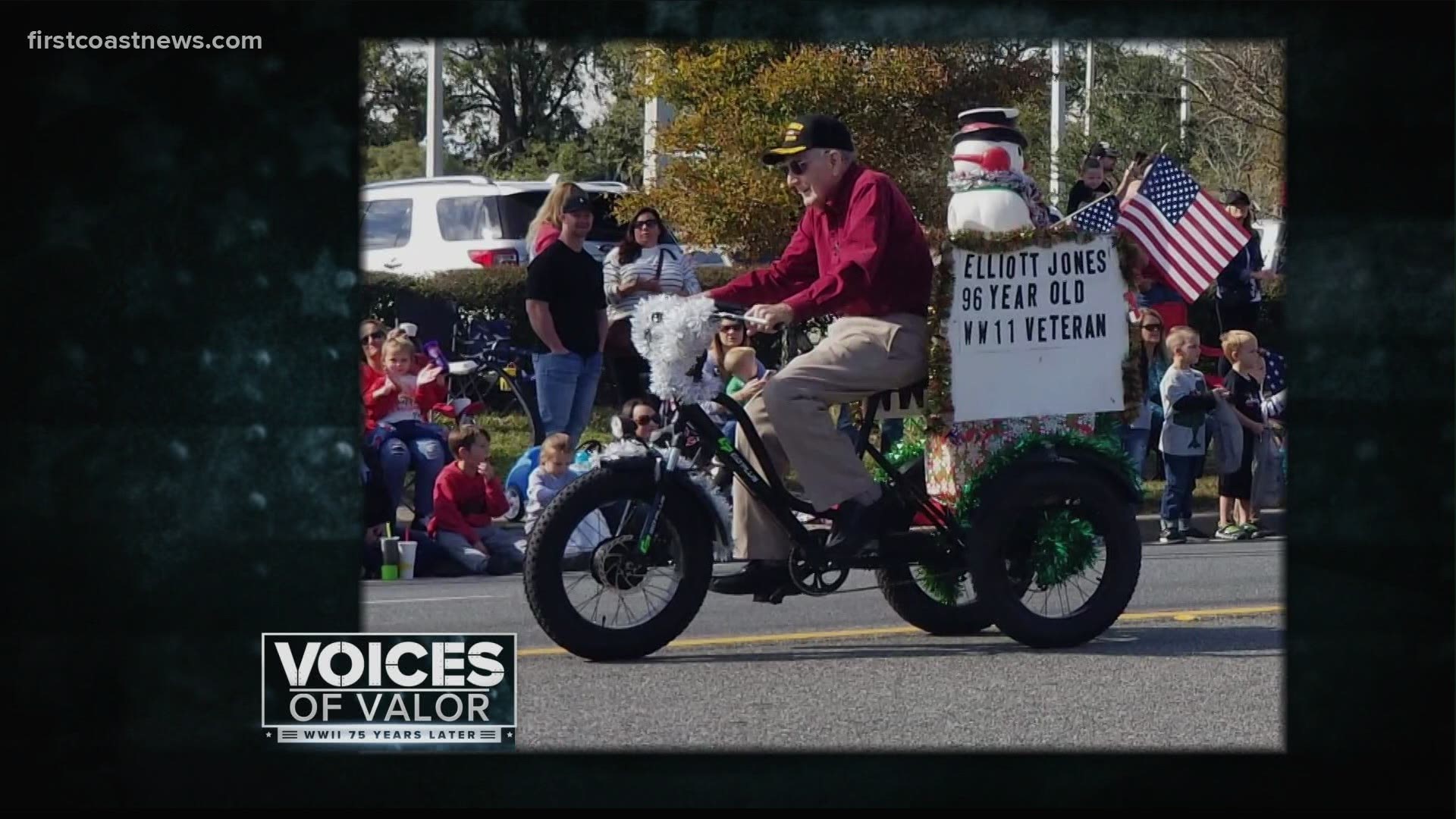JACKSONVILLE, Fla — "From way over there," Elliott Jones says, as he points across the room and smiles with a handsome, yet impish grin. "From way over there, the girls would look at me and say, 'Oh, those blue eyes!'"
Now those blue eyes are still full of charisma, even though Jones, at age 96, needs a special screen to magnify what he reads.
Every year in Callahan, Florida, Jones rides his bicycle with a sign proudly saying he's a WWII veteran. "Everyone at the Christmas parade...they cheer me on and clap and yell when I go by," he says.

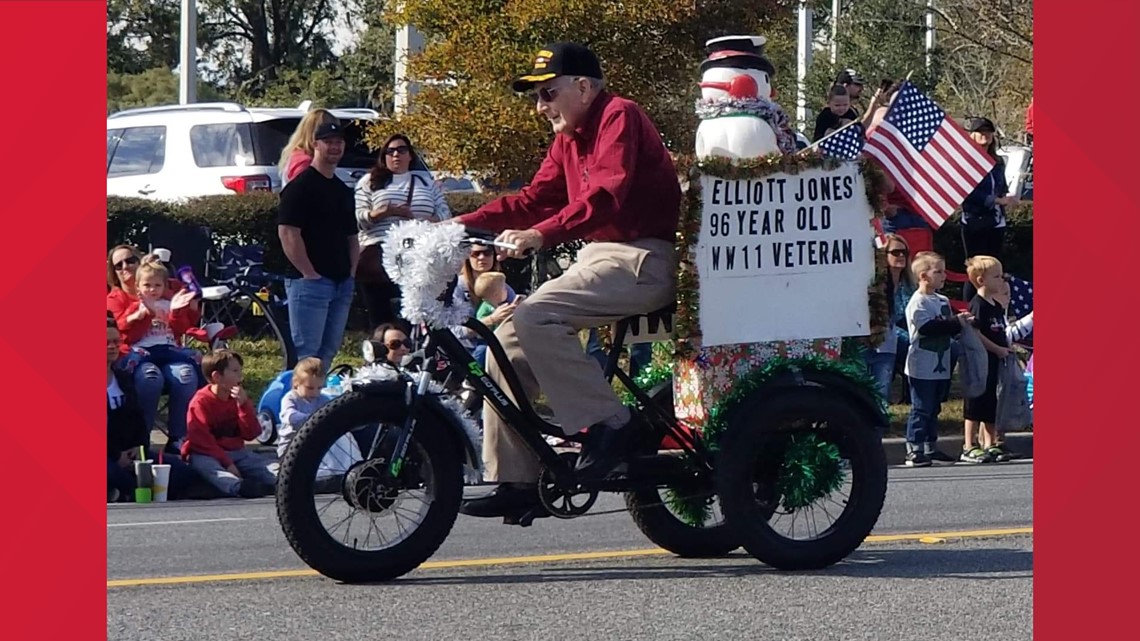
So let's go back to 1942. Jones was a signal-caller for the U.S. Navy. And he still knows morse code. His mind sharp and clear, he can whip off the short and long bursts of sounds, as if he's still a young sailor.
The students at West Nassau High get to meet Jones in person, as he teaches them about why his job was so crucial in the war. He had to explain to the students there was no way to communicate with other ships, unless you went by radio back then. And that could be a disaster if your message were intercepted by the enemy.

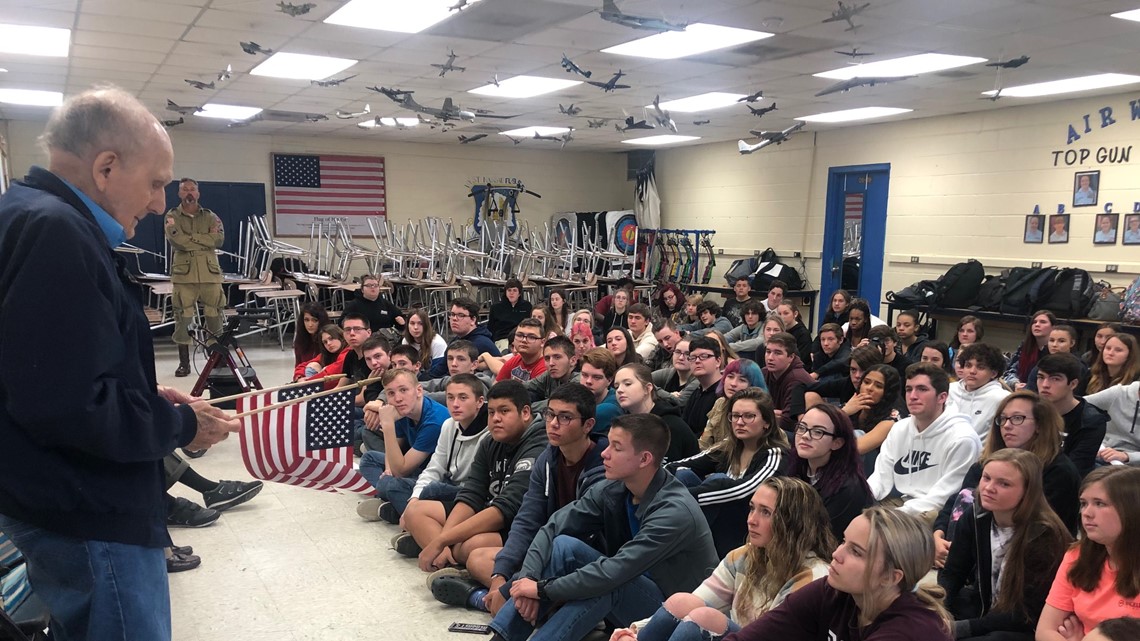
So he would wave lights or flags in morse code to give important messages to other ships. It could mean a victory, rather than a loss of life.
Students at West Nassau learn from their teachers and principal the importance of respect for our veterans.
"Do you mind if I get your autograph?," one student asked Jones.

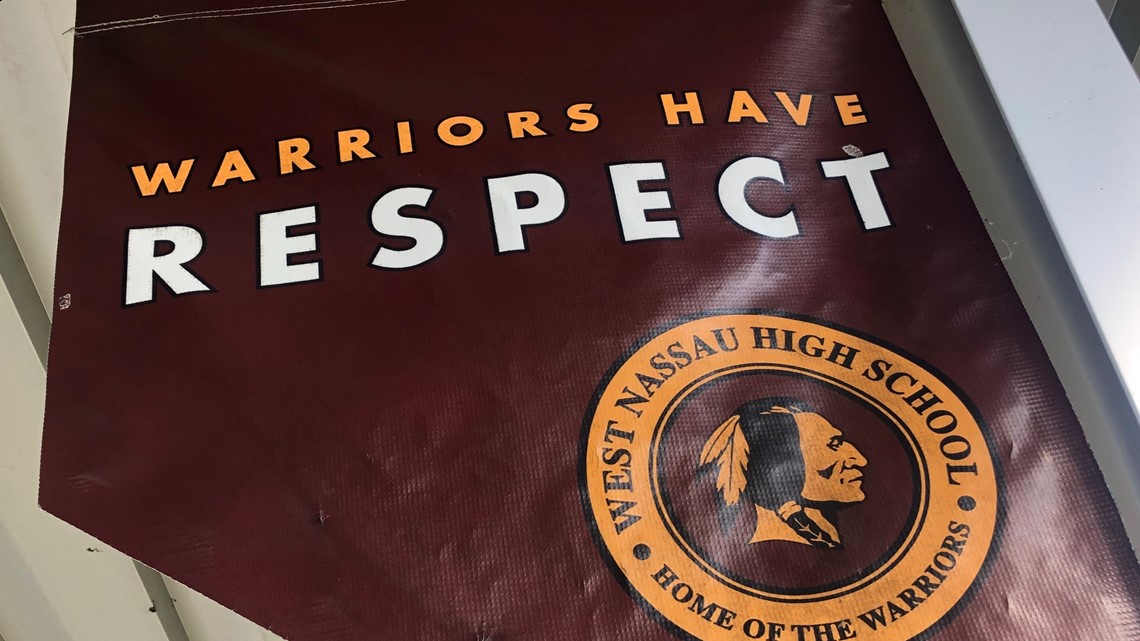
First Coast News was fortunate to meet Jones before the pandemic and the necessity of wearing masks.
To put into perspective the significance of Jones and other sailors during the war, we went to Dr. Rob Citino, Senior Historian at The National WWII Museum in New Orleans.
"It was the navy that was projecting U.S. power," Citino says. "You want to project power, you build a world-class fleet and that's what the U.S. did to win the war."
Citino credits the men who wore the uniform of the United States Navy and also the men -- and women -- on the homefront who converted peacetime factories into wartime production facilities.
"The U.S. built more ships in 1941 than Japan built in the whole war," Citino says.
As for Jones, he is proud to have served our country.

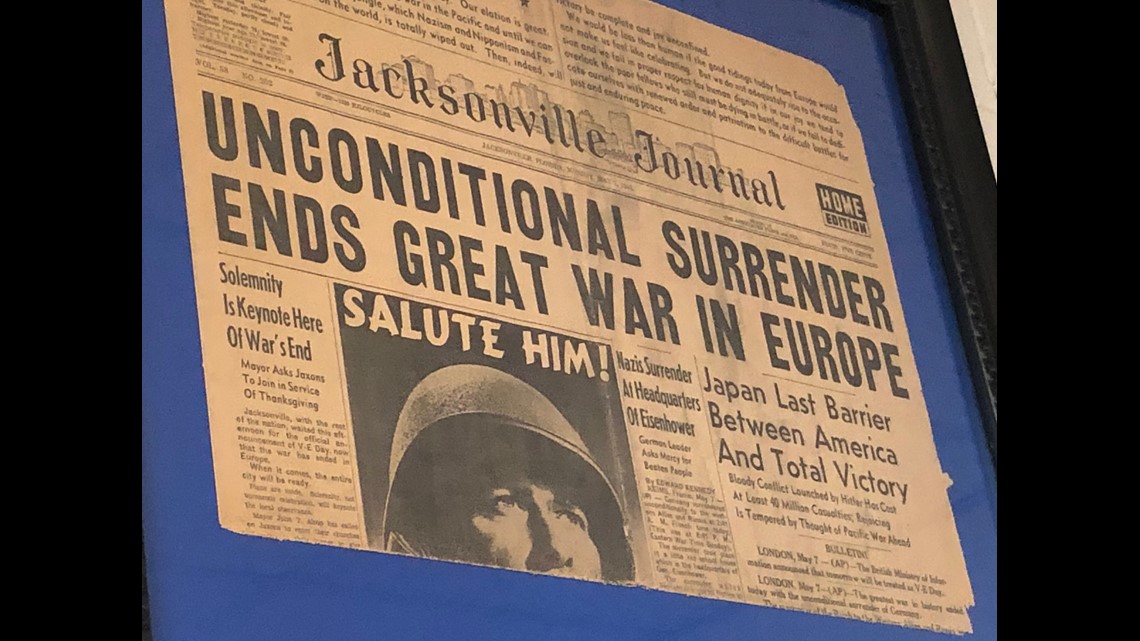
And what a gift for students to meet him. In fact, they seemed to realize the treasure in front of their eyes.
They gave Jones a standing ovation.

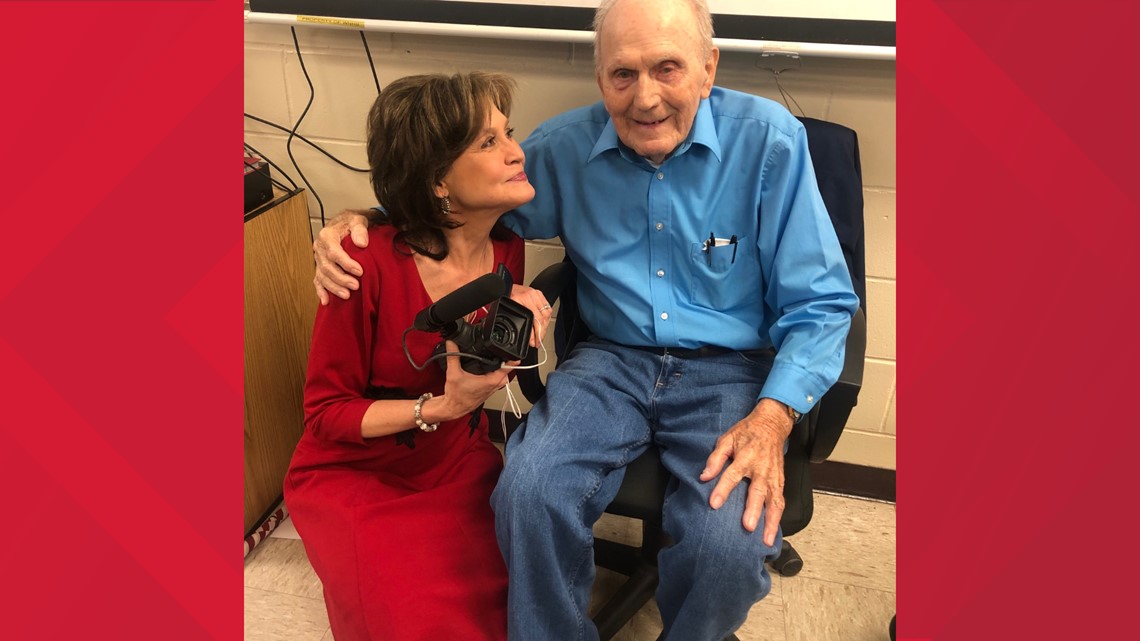
First Coast News' Jeannie Blaylock and Lew Turner are sharing their interviews with WWII veterans in Voices of Valor, our series to mark the 75th Anniversary of the end of WWII. Catch the incredible stories every weeknight through Dec. 23 at 6 p.m. on First Coast News.

